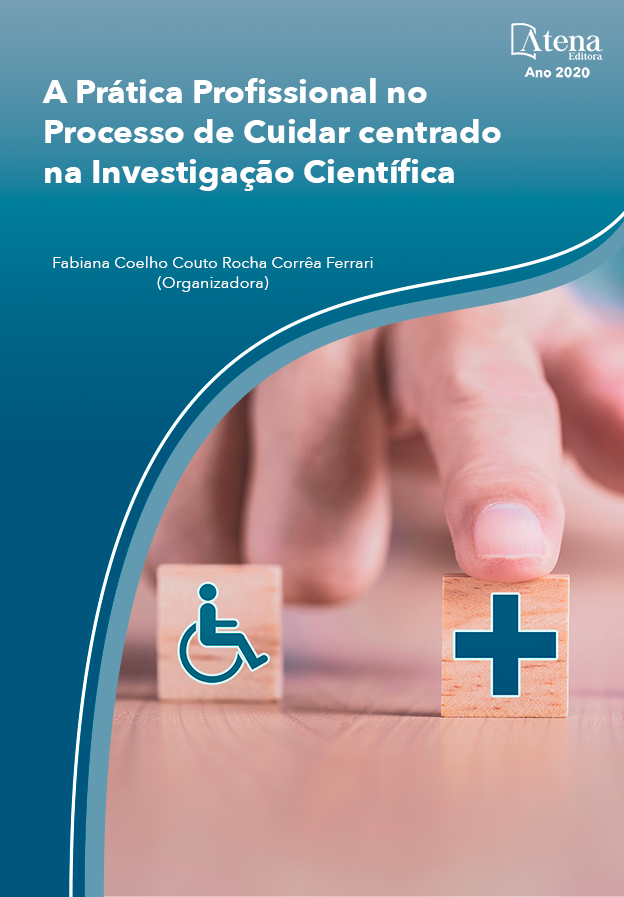
EDUCAÇÃO EM SAÚDE SOBRE DIABETES MELLITUS
INTRODUÇÃO: O Diabetes Mellitus é um conjunto de alterações metabólicas, que se caracteriza por hiperglicemia, podendo desencadear complicações, disfunções e/ou insuficiência de órgãos e sistemas, tais como: olhos, rins, nervos, cérebro, coração, vasos sanguíneos, entre outros. OBJETTIVO: Relatar experiência no desenvolvimento de educação em saúde sobre Diabetes Mellitus com colaboradores que atuam como serviços gerais. METODOLOGIA: Estudo descritivo, com abordagem qualitativa, do tipo relato de experiência, sobre educação em saúde que ocorreu no mês de setembro de 2017 em Instituição de Ensino Superior Privada, na cidade de Fortaleza-Ceará, durante a disciplina de Ensino Clínico em Saúde do Adulto e Idoso Prático da graduação de Enfermagem. O público-alvo foram colaboradores pertencentes ao cargo de serviços gerais dessa instituição. RESULTADOS: Para realização da atividade educativa, elaborou-se folders que abordavam o conceito da doença, sinais e sintomas (Poliúria, Polidipsia, Polifagia, Perda ou Ganho de Peso sem explicação aparente), causas e complicações. Ofertou-se aos colaboradores a realização de testes de glicemia capilar (sendo os resultados encontrados informados individualmente, em linguagem acessível, avaliação de riscos cardiovasculares, através da relação cintura-quadril, em ambiente que garantisse a privacidade na mensuração do indicador citado. Ademais, foram distribuídos panfletos informativos sobre doenças crônicas não transmissíveis. Infere-se que as informações foram bem compreendidas, sendo esse aspecto reforçado por meio de questionamentos sobre a temática abordada, revelando boa interação dos presentes na atividade acima descrita. CONCLUSÃO: A experiência proporcionou a vivência da atuação do aluno de graduação da enfermagem na assistência, tornando os discentes ativos no processo de atendimento, prevenção e promoção da saúde. A estratégia incentivou a busca de mais conhecimentos para melhor suporte dessa clientela. Percebeu-se a importância da atuação do enfermeiro na compreensão de patologias de caráter crônico. Ressalta-se que, além de alcançar nosso público-alvo, cita-se que outros discentes da instituição demonstraram interesse pelo assunto abordado.
EDUCAÇÃO EM SAÚDE SOBRE DIABETES MELLITUS
-
DOI: 10.22533/at.ed.5942009117
-
Palavras-chave: Complicações do Diabetes. Diabetes Mellitus. Educação em Saúde.
-
Keywords: Complications of Diabetes. Diabetes Mellitus. Health education.
-
Abstract:
INTRODUCTION: Diabetes Mellitus is a set of metabolic alterations, characterized by hyperglycemia, which can trigger complications, dysfunctions and / or insufficiency of organs and systems, such as: eyes, kidneys, nerves, brain, heart, blood vessels, among others. OBJECTIVE: Report experience in the development of health education on Diabetes Mellitus with employees who act as general services. METHODOLOGY: Descriptive study, with a qualitative approach, of an experience report type, about health education that took place in September 2017 at a Private Higher Education Institution, in the city of Fortaleza-Ceará, during the Clinical Teaching Course in Adult Health and Elderly Practical of Nursing graduation. The target audience was employees belonging to the position of general services of that institution. RESULTS: To carry out the educational activity, materials (folders) were developed that addressed the concept of the disease, signs and symptoms (Polyuria, Polydipsia, Polyphagia, Weight Loss or Gain without apparent explanation), causes and complications. Capillary blood glucose tests were offered to employees (the results found being reported individually, in accessible language, cardiovascular risk assessment, through the waist-hip ratio, in an environment that would guarantee privacy in the measurement of the mentioned indicator. In addition, informative pamphlets were distributed on chronic non-communicable diseases, it appears that the information was well understood, and this aspect was reinforced through questions about the topic addressed, revealing good interaction of those present in the activity described above. CONCLUSION: The experience provided the experience of the undergraduate nursing student in assistance, making students active in the process of care, prevention and health promotion. The strategy encouraged the search for more knowledge to better support this clientele. The importance of the nurse's performance in understanding chronic pathologies was perceived. It is noteworthy that, in addition to reaching our target audience, it is mentioned that other students of the institution showed interest in the subject addressed.
-
Número de páginas: 9
- CRISTINA COSTA BESSA
- MAGUIDA GOMES DA SILVA
- FABERGNA DIANNY DE ALMEIDA SALES
- JOSÉ RICARDO LUCAS DE CASTRO JUNIOR


